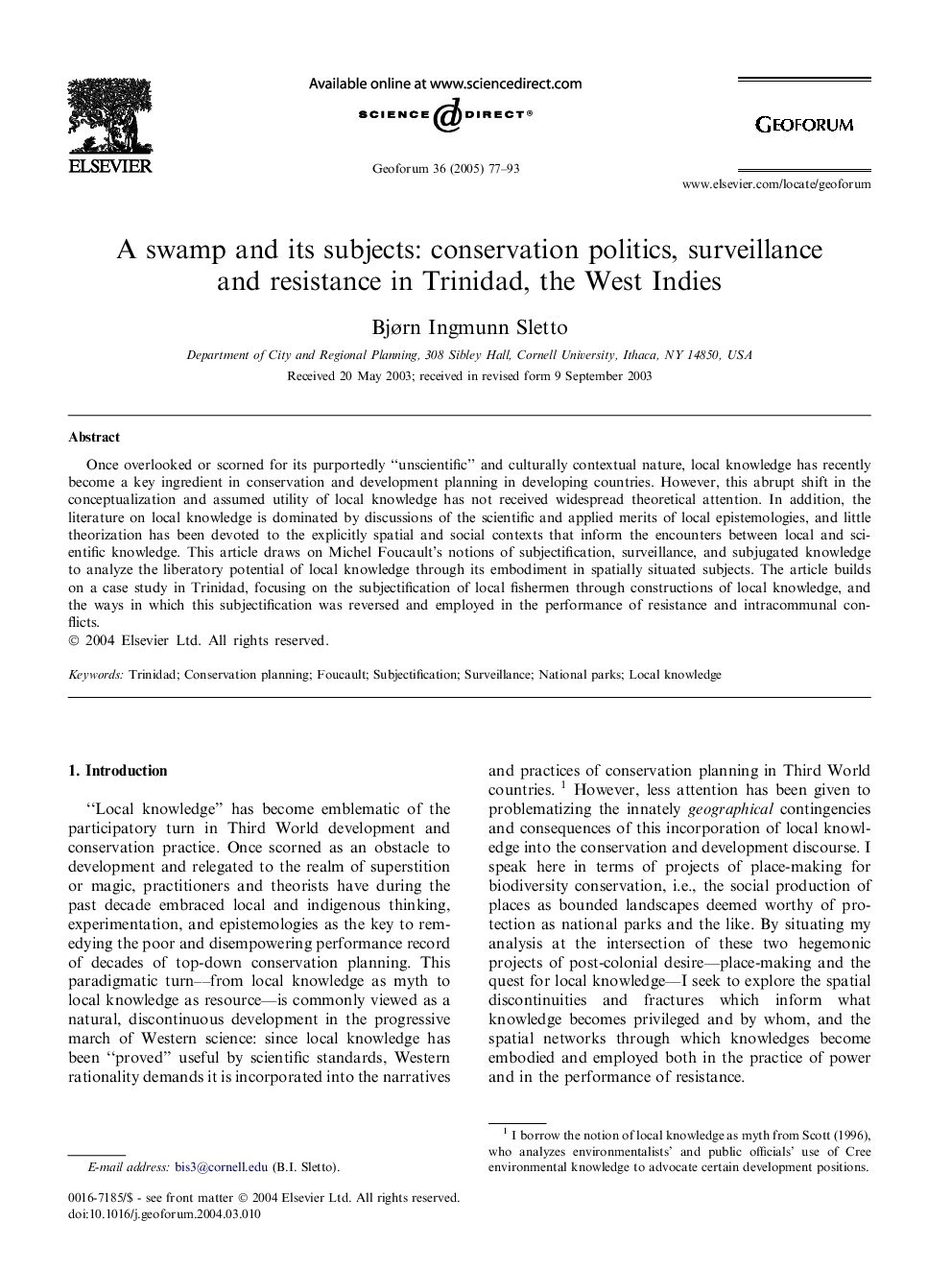| Article ID | Journal | Published Year | Pages | File Type |
|---|---|---|---|---|
| 9552356 | Geoforum | 2005 | 17 Pages |
Abstract
Once overlooked or scorned for its purportedly “unscientific” and culturally contextual nature, local knowledge has recently become a key ingredient in conservation and development planning in developing countries. However, this abrupt shift in the conceptualization and assumed utility of local knowledge has not received widespread theoretical attention. In addition, the literature on local knowledge is dominated by discussions of the scientific and applied merits of local epistemologies, and little theorization has been devoted to the explicitly spatial and social contexts that inform the encounters between local and scientific knowledge. This article draws on Michel Foucault's notions of subjectification, surveillance, and subjugated knowledge to analyze the liberatory potential of local knowledge through its embodiment in spatially situated subjects. The article builds on a case study in Trinidad, focusing on the subjectification of local fishermen through constructions of local knowledge, and the ways in which this subjectification was reversed and employed in the performance of resistance and intracommunal conflicts.
Keywords
Related Topics
Social Sciences and Humanities
Economics, Econometrics and Finance
Economics and Econometrics
Authors
Bjørn Ingmunn Sletto,
